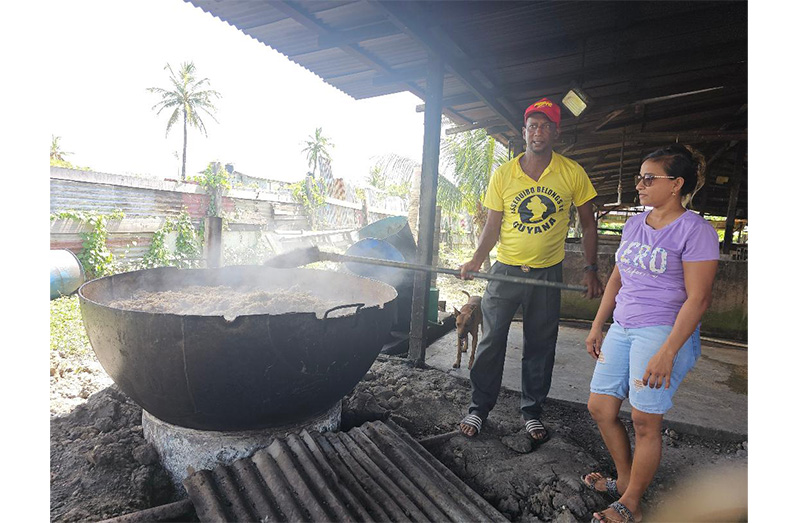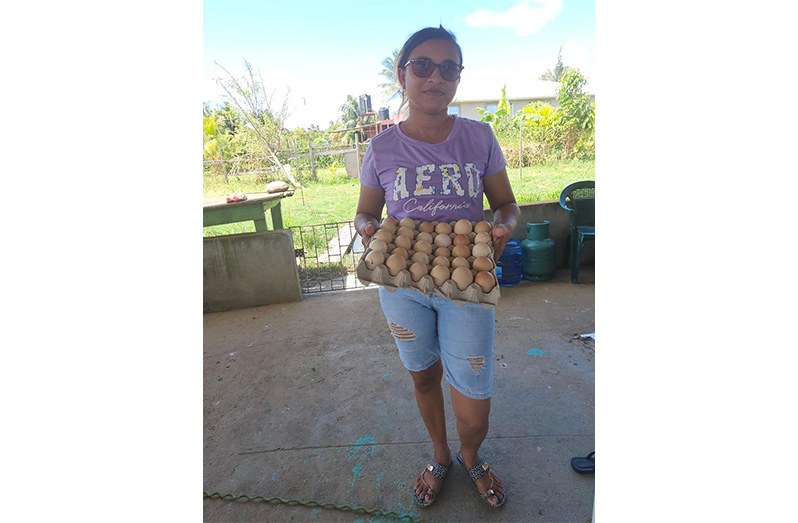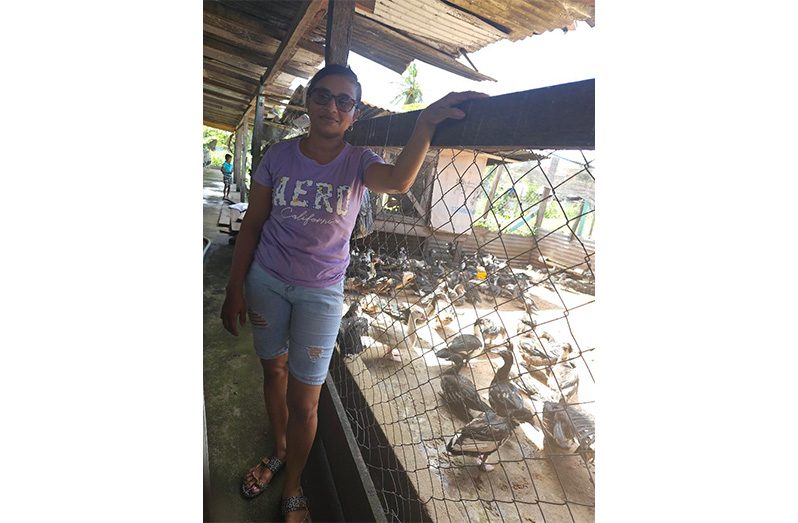- Triumph Farmer Builds a Model Pork Enterprise
AT the backlands of Triumph, East Coast Demerara, David “Davo” Sital has turned adversity into achievement, establishing one of the most respected small-scale swine operations in the area. Known for his attention to hygiene, record-keeping, and the production of quality pork, his farm today stands as both a family legacy and a model of resilience.
Sital comes from a generation of swine farmers — his grandparents raised pigs, and he has continued in their footsteps. “I grew up seeing what pig farming meant to my family, and I always wanted to improve on it,” he explained. This commitment is reflected in the meticulous farm records he maintains, documenting breeding, feeding, health management, and sales. The system not only strengthens efficiency but also ensures transparency for regulators and buyers.

His entry into farming was not without challenges. He began in Lusignan but was forced to relocate following disputes with residents. Turning to his ancestral land in Triumph, he faced swamp-like terrain that was considered unsuitable for livestock. With government land-clearing assistance and his own investment in land-filling, pens, and infrastructure, he transformed the area into a thriving farmstead.
“The relocation drained my savings, but giving up was never an option,” Sital recalled. Restarting with 40 pigs in 2021, his herd has since grown to 180, supported by improved biosecurity measures and guidance from the Guyana Livestock Development Authority (GLDA).
Today, his operation is fully registered with the GLDA and adheres to strict welfare and food safety standards. The farm features dedicated gestation areas and farrowing crates, while its breeding programme has already boosted productivity. He is preparing to join GLDA’s artificial insemination (AI) initiative, which will further enhance his herd’s genetics once he acquires additional female stock.
Feeding practices, Sital stressed, are central to the quality of his pork. His pigs are raised on a diet of commercial swine feed from Bounty Agro Enterprises, supplemented with blends of rice and fish by-products. “The secret to tender pork is in the feed,” he said.
Equally important are his post-harvest methods. Using professional-grade equipment such as a bone-cutting saw, he tailors premium cuts to customer requests. Maintaining a “farm-to-table” philosophy, Sital ensures his pigs are free from antibiotics and medicines for at least three months before slaughter, guaranteeing safe and wholesome pork for consumers.
With 75 per cent of his pork sold directly to restaurants and bars, and the remainder retailed at the Mon Repos Market under approved hygienic conditions, Sital has secured a loyal customer base.

Community spirit is another hallmark of his approach. Last year, he hosted a free Mother’s Day barbecue for women in his community, an initiative he hopes to continue annually.
Still, his growth is slowed by limited access to finance. “I want to expand, but it takes capital,” he noted. He is hopeful that the establishment of the proposed Agriculture Development Bank will provide much-needed credit to farmers like him. Combined with technical support from the Ministry of Agriculture through the GLDA, Sital envisions expanding his farm into a modernised swine enterprise.
His partner, Anita Mohan, shares his passion for agriculture. With a $100,000 government cash grant and her savings, she established a poultry business rearing ducks, layers, and Black Giant birds. Like Sital, she hopes for further support to expand her business.
Together, the couple represent the resilience and innovation of Guyana’s small-scale farmers. Their story reflects not only the strength of family tradition but also the importance of technical guidance and financial backing in securing the future of local agriculture.

As Guyana modernises its agricultural sector, farmers like Sital demonstrate how determination, record-keeping, and the adaptation of new strategies can transform small enterprises into reliable suppliers of safe, high-quality food for the nation.
The enterprising couple are also rearing the dual-purpose Black Giant birds to further capitalise on income generation for the farm, since they are fed using feed scraps from the pigs.



.jpg)











